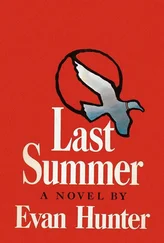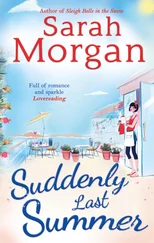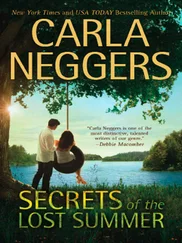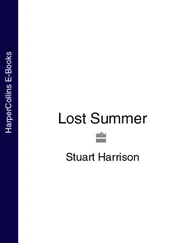Amina changed out of her galabia, shielded by the door of the broom closet. I sat in the kitchen. She asked when Mama would wake. I shrugged. Maybe an hour? She went to the fridge. Opened it, peered inside. Amina knew she could have whatever she wanted. She took out four eggs. Maneuvered them into one hand. Opened the drawer of the fridge with the other. Took out two baladi breads. Nudged the fridge door closed with her voluminous hip. She paid no notice to me as she went to the stove. Put the eggs down on the counter. Barricaded them with the bread. Oil. Salt. Pepper. Cracked the eggs into the pan and let them fry on the highest heat, the oil splattering everywhere. Turned the left burner on and put the bread on the flames. As she was flipping it over with her fingers, Mama walked in. It was early for her. She had slept badly. She was wearing her red satin robe, one Baba had brought back from a trip. She asked how we were as she went to the counter. Unplugged the kettle. Took it to the sink. Filled it with water. With her back to Amina, she asked how she was. So you didn’t come on Wednesday? Mama had started to ask questions like this. Questions that were weighted. Questions that had already been answered. Questions that pretended to pose themselves but were rather statements, usually of disapproval. She said them with her neck tensed and slightly shaking. Amina turned off the stove and told Mama that she would never believe what she had been through. They had surrounded her whole neighborhood and every single building, armed, masked special 777 forces and tanks. Weapons like we have never seen before.
The massacre had taken place in the early morning on the eastern bank of Luxor, just before Hatshepsut’s Temple. The cruise ship had been approaching the city when the gunmen opened fire. Forty-five minutes of continuous rounds. Sixty-two people killed. Dozens injured. Within minutes of the attack, the message circulated through Cairo’s state security headquarters. Special forces were dispatched to all the Islamist strongholds. Amina’s neighborhood, across the river from our island, was the first place sealed shut. We heard sirens that morning but didn’t know what they were. The neighborhood was nicknamed the Islamic Republic. Kandahar. I could see it from my bedroom window, the beginning of it, right across the river. It extended for miles. Amina said they had been stuck in their room for two days until they cleared them. It was Al-Gamaa Al-Islaamiya, she said. Not the Brotherhood. Mama looked with brows raised and asked what the difference was. This was another of those shrouded statements. Amina put her hands to her hips. Of course there is a difference, a vast one. The Brotherhood doesn’t believe in violence. Mama tilted her head sideways and looked at her sternly. Amina was quick to blurt, Not all of them. I swear Sayed had nothing to do with this. Many of the Brotherhood are denouncing violence, they are beginning to, the groups are different now, separate. Mama had never trusted the husband. He had come to the house when Amina was sick to collect her salary. He had a wild beard and glum face. Carried a short stick. Didn’t look women in the eye. Wouldn’t shake hands. Mama had warned Amina she had to be careful what she was dragged into, but Amina insisted she had nothing to do with any of his business. After the bombings began, she said that even her husband was having second thoughts about the Brotherhood, even the nonviolent faction of them. He was thinking of leaving them altogether. Many of their members had left. Mama told her that she had to realize that I went to university right near the site of the last bomb. Even though it was aimed at tourists, it might easily have hit me. Amina shook her head and asked God the Greatest to erase and forgive these words. Allah protect the girl. Mama poured the hot water into her mug. She seemed on the verge of an emotion I had never seen from her before. Anger? I imagined this as a scene in my film and picked up a Biro from the table, making a note on the back of my hand. I watched as Amina tore a strip of bread and dipped it into the pan, scooped out a piece of fried egg, then circled the bread in the oil. She stuffed her mouth and chewed. Mama took a sip of her coffee and shook her head.
—
I go into my bedroom and sit at my desk. It’s facing the big window overlooking the Nile. I can’t see the Nile. I can’t see anything except the overgrown mango trees. We keep talking about pruning them. The gardener says nobody in the country knows how to prune. He doesn’t know what we mean. He tells us he can cut them down if that’s what we want. Mama gets upset when he says this. She slams the window. Shakes her head. We let the trees grow. They are higher than the house. But there aren’t any mangoes. There haven’t been mangoes in five, six, maybe seven years. Every summer I wait to see. Maybe this year they will fruit again. And then they don’t. I ask the gardener and he says the soil is bad. How does the soil become bad? He shrugs his shoulders. It’s just the way it is, something from Allah. I think of maybe starting my film with the mango trees. I flip through my script and wonder about the soil.
I start writing:
Over lunch Dido says the only way our lives will change is if we demand it. People like our cousin in America are the reason we’re in stagnation. Leaving is the greatest evil. Then silence. Or maybe the other way around. He isn’t sure. We just can’t be passive, he knows that. My friend’s theory is nonsense. Nothing is pre-planned. Every moment is pregnant with the possibility for change. It’s important to look at everything that happens with a view for the future. Dido is eating the eggs that Mama has made. They are covered in Tabasco. He is wearing jeans and a casual shirt but also a tie. It’s flung back over his shoulder. His work doesn’t require him to wear a tie but he likes to. It’s a sign of respect for the cases he’s working on. He chews slowly and speaks between bites.
I make notes in the margin: Have we inherited defeat, the very spirit of it? Is it seeped into who we are? Do we have to reconcile with our parents’ losses to build again? Where does Dido’s anger figure in? If in fact we are angry. I circle this and think about all that I feel has been stolen from me, from us. I wonder if anger is too simple a word, too reductive. Maybe I could have a conversation or debate between Uncle and Dido about this? I underline and write out the word languor. I don’t want my film to be scripted, but I have a sense of what I would like the tenor, atmosphere, of it to be. I want to create enough cues and structure for it to be a cinematic feature, and enough space to also include spontaneity and cinéma vérité. I write: Quotidian. I wonder what it would mean to have people from my life acting scenes as well as being trailed with a camera every day. Could I script certain events? Or have someone recount them as part of a family discussion? Like showing the different viewpoints that reflected the complexity of the national psyche, exposed in the days after Mubarak returned from Addis. Maybe something that captures the gap of generations? For days afterwards the TV played, almost on loop, Mubarak giving his speech on landing back at Cairo International Airport . Suddenly I found a blue van blocking the road, and somebody jumped to the ground. A machine gun started….I realized there were bullets coming at our car. I saw those who shot at me. Everyone said it was the Israelis. Guests on Channel One and Two all said el yahoud . The Jews. Mossad. There were Ethiopian Jews too, they told us. I thought Kebbe might have been one. Nobody asked, but it was presumed. Mama and Baba had never minded the Jews. They had many Jewish friends and loved Kebbe. It was the Israelis they had a problem with. People had started putting up posters on their buildings wishing the president a speedy recovery. They made posters with the Star of David washed over with dripping red paint. The Jews had blood on their hands. Everyone said this. People worried it would be ’67 all over again. Then one day, a few days later, new evidence was found. The gunmen were Arab. Uncle was with us that day. We heard the news on TV as it broke. He erupted, about there being no difference between us . Mama and I both looked at him, eyes wide. Spit flew from his mouth to the floor. He meant the Arabs and Jews. Under his breath he muttered that common sense is not that common. I could see Mama’s neck tense. I didn’t know if it was something Uncle was saying or his spit. I sat there until he stopped talking and we were all quiet. I asked if anyone wanted a glass of water. Uncle asked how my writing was going.
Читать дальше
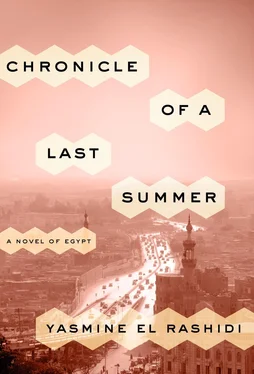
![Маргарет Миллар - Rose's Last Summer [= The Lively Corpse]](/books/384369/margaret-millar-rose-s-last-summer-the-lively-c-thumb.webp)
